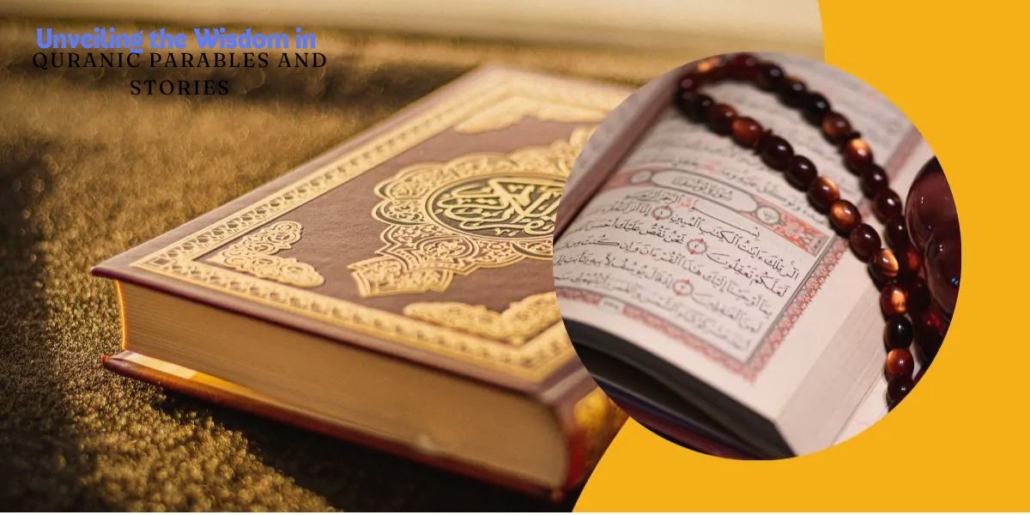The Qur’an, the holy book of Islam, is replete with Quranic parables and stories that are not only spiritually enriching but also imbued with profound wisdom. These narratives serve as a timeless source of guidance, moral instruction, and reflection for Muslims and non-Muslims alike. By delving into these parables, one can uncover layers of meaning that resonate with contemporary life and ethical dilemmas.
The Role of Parables in the Qur’an
Parables in the Qur’an are succinct narratives that convey deep moral and spiritual truths. They often use metaphorical language and vivid imagery to illustrate concepts that might otherwise be difficult to grasp. The Qur’an itself states, “We have certainly set forth for mankind, in this Qur’an, every kind of parable” (Qur’an 30:58), emphasizing the importance of these stories in imparting wisdom.
Key Parables and Their Wisdom
-
The Parable of the Good Tree and the Bad Tree
This parable is found in Surah Ibrahim (14:24-26). It compares a good word to a good tree, firmly rooted and yielding its fruit in every season by the permission of its Lord. Conversely, a bad word is likened to a bad tree, uprooted from the surface of the earth, having no stability. The wisdom here lies in the power of words and actions. Just as a good tree benefits its environment, positive words and deeds have lasting, beneficial impacts, whereas negative actions are ultimately destructive.
-
The Parable of the Spider’s Web
In Surah Al-Ankabut (29:41), the Qur’an likens those who take protectors other than Allah to a spider building its house. Though intricate, the spider’s web is fragile and easily destroyed. This parable underscores the futility of relying on anything or anyone other than the divine. It teaches the importance of placing one’s trust in Allah, whose protection is the only true security.
-
The Parable of the Blind and the Seeing
In Surah Hud (11:24), the Qur’an compares those who see and those who are blind to illustrate the difference between believers who are guided by faith and those who reject the truth. This parable highlights the clarity and insight that faith brings, akin to the difference between light and darkness. It encourages believers to value and seek true understanding and wisdom through faith.
Wisdom Derived from Qur’anic Stories
-
Patience and Trust in Divine Decree (Story of Prophet Job)
The story of Prophet Job (Ayyub) in Surah Sad (38:41-44) exemplifies patience and unwavering faith in the face of immense suffering. Despite losing his wealth, health, and family, Job remained steadfast and trusted in Allah’s wisdom and mercy. This story teaches that enduring hardships with patience and faith can lead to divine blessings and relief.
-
Repentance and Mercy (Story of Prophet Jonah)
The story of Prophet Jonah (Yunus) in Surah Yunus (10:98) highlights the themes of repentance and divine mercy. Jonah’s initial attempt to flee his prophetic mission led to his entrapment in the belly of a whale, where he repented sincerely. Allah, in His infinite mercy, forgave Jonah and delivered him. This story underscores that sincere repentance can lead to forgiveness and redemption.
-
The Consequences of Arrogance (Story of Pharaoh)
The narrative of Pharaoh in several surahs, including Surah Al-Qasas (28:38-42), illustrates the perils of arrogance and tyranny. Pharaoh’s refusal to acknowledge the signs of Allah and his oppressive rule ultimately led to his downfall. This story serves as a warning against arrogance and injustice, advocating for humility and righteousness.
-
Lessons for Contemporary Life
The wisdom in Quranic parables and stories is timeless and universally applicable. These narratives encourage reflection, self-improvement, and adherence to ethical principles. They teach:
- The importance of faith and trust in divine wisdom.
- The power of patience and perseverance.
- The value of humility and repentance.
- The impact of positive and negative actions.
Final Thought
By contemplating these parables, one can derive valuable insights that guide personal conduct and contribute to a just and moral society. The Qur’an, through its rich tapestry of stories, continues to enlighten hearts and minds, offering wisdom that transcends time and place.
